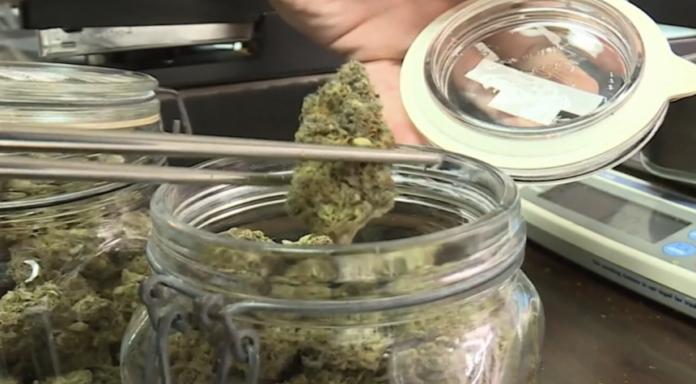Arkansas voters will not be able to vote on a ballot measure to expand medical marijuana because the Supreme Court of Arkansas ruled that the measure did not fully explain what it was going to do. The initiative has been thrown out just two weeks before an election.
The court has ordered that the election officials do not count the votes on the measure. It is too late to remove it from the ballot – early voting started Monday. The proposed constitutional change would have expanded the list of medical professionals who can certify patients as medical cannabis users, increased qualifying conditions, and extended the validity of medical cannabis cards to three years.
The justices decided Monday, 4-3, that the measure failed to fully inform voters about the fact that it would have taken away the ability of the Legislature to amend the 2016 constitutional amendment which legalized medical marijuana for the state.
Justice Shawn Womack, in his majority opinion, wrote: “This decision domed the proposed title of the ballot and it is clearly misleading.”
The court said that the measure failed to inform voters about the fact that, if passed, the amendment would legalize marijuana possession for up to one ounce for any reason if marijuana is legalized under federal law.
In court documents, organizers pointed out that the ballot measure cited the number for the provision to be repealed. The group argued past court rulings stated that measures do not have to summarize the law currently being changed.

Justice Cody Hiland, in a dissenting opinion, said that the court ignored decades of precedent when it ruled the measure’s language was misleading.
Hiland wrote: “This court has long established definitive standards to evaluate the sufficiency of popular names and ballot titles.” “This court has never deviated from these standards.”
In the same decision, the justices rejected the reasons given by election officials for ruling that the organizers of the measure did not have the required signatures to put the measure on the ballot.
Arkansans for Patient Access (the group behind the measure) said that it would continue to push for the expansion of the medical marijuana program, and the signatures they gathered demonstrated widespread support.
The group issued a statement saying, “We are disappointed by the Court’s ruling.” It seems that politics has won over legal precedent.
Arkansans for Patient Access filed a lawsuit after Secretary of State John Thurston stated that the group did not have enough signatures to qualify for the ballot. Protect Arkansas Kids, an anti-measure group that intervened in this case raised the issue of the ballot measure’s language.
Thurston’s Office refused to count some signatures, claiming that the group did not follow paperwork rules regarding paid signatories.

Earlier this year, the state rejected petitions in support of a ballot measure against abortion on similar grounds.
In July, the state determined that the group did not have enough signatures to qualify for an extension of 30 days. The state told the group, however, that additional signatures collected by paid canvassers would not count if the required information had been submitted by the canvassing firm rather than the sponsors of the measure.
The court said on Monday that this decision was incorrect, stating that state law allows for a broad range of people who can be considered as sponsors of the measure.
Despite the uncertainty about whether or not it would go to a ballot in November, groups had already begun campaigning against it. Last week, the Family Council Action Committee announced that it would launch a statewide campaign against the measure.
Jerry Cox said that a measure of this magnitude had no place on the ballot, or in the Constitution, after the ruling.
Around half of U.S. States allow recreational marijuana, and another dozen have legalized medical cannabis. These numbers may grow even more after the November elections. In Florida, North Dakota, and South Dakota, voters will decide if recreational marijuana is legalized for adults. Two medical marijuana initiatives will also be on the ballot in Nebraska.


